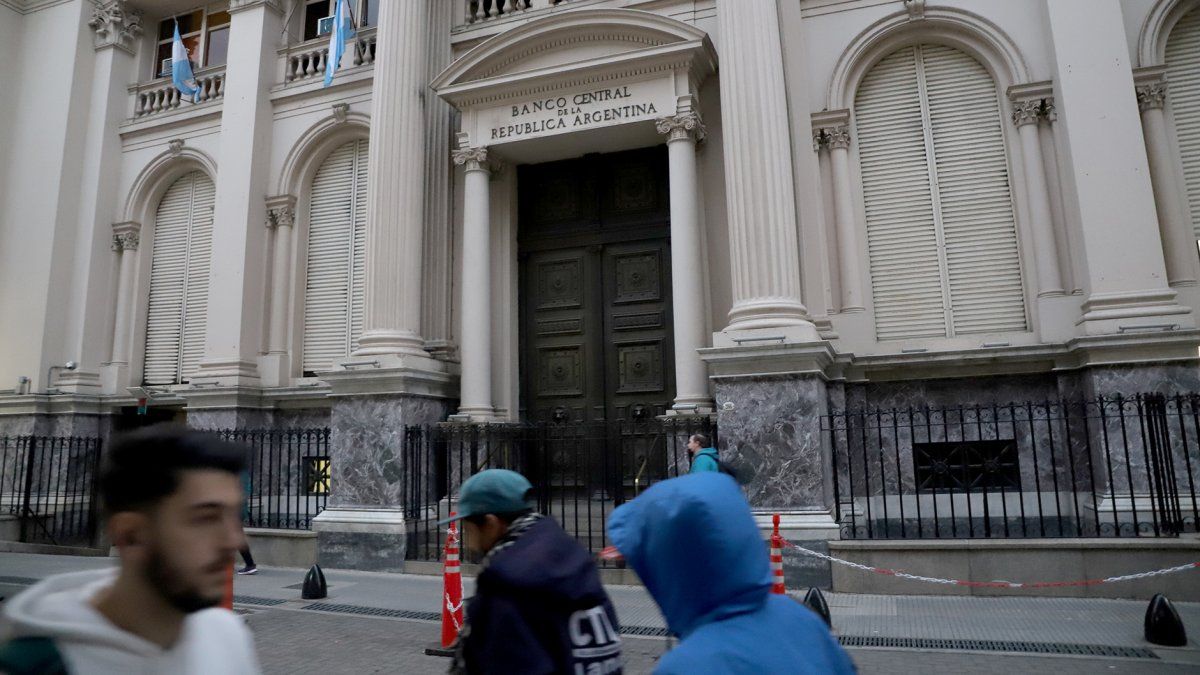He Professional Council of Economic Sciences (CPCE) of the City of Buenos Aires sent a letter to the Macroeconomic Analysis Management of the Central Bank (BCRA) This could jeopardize the publication of the next edition of the Market Expectations Survey (REM) published monthly by the monetary and financial regulator.
What the entity that brings together more than 70,000 graduates in Economic Sciences is claiming is that the procedure under which the aforementioned monthly survey is carried out does not comply with the legal requirements that it should, since local banks, consultancies, foundations, banks participate in it investment and international analysts, but warn that it should be restricted to registered Economics graduates only. This is established by Law 20,488, according to the letter.
“We sent the note in response to a request from the Economists registered with the Council. What is sought is that the participants in the survey are enrolled and that this is a requirement to integrate it, “he says to Ambit the president of the institution, Gabriela Russo. And he explains that the fact of being registered is a guarantee and an ethical and technical support that should be fulfilled to ensure the quality of the information.
This claim of the registered economists arose within the internal commissions that the council has and whose role is to “ensure the dignified exercise of the profession.” That is why Russo points out that they should keep a check that the appropriate regulations are complied with and, consequently, they considered it opportune to make this call to attention to the BCRA.
The problems that the Council sees in the REM
Regarding the current modality used to prepare the REM, the representative of the city’s economic sciences professionals indicated that, “although we do not have access to the complete list of those who participate, Currently, prior registration is not among the BCRA requirements” and explains that it would not change anything in terms of costs for the organization or for the economist involved that this norm is complied with, but, yes, for society.
And it is that, according to the letter of the Council, the BCRA highlights on its website that “this survey allows a systematic follow-up of the main short and medium-term macroeconomic forecasts on the evolution of the Argentine economy and is generated from a survey carried out among specialized people from the country and abroad… The information it provides is of special relevance, not only for monetary and economic policy decisions, but also for consumption and investment decisionsestablishing itself as a public goodby providing the community with the best possible information regarding the estimates made by specialists on the future behavior of the main variables”.
Consequently, Russo maintains that “anyone can, at this time, participate in the survey without guarantee that the data has the backup of your credentials” and considers that this is a problem for a study that, “is used to make very important investment decisions.”
Gabriela Russo 1200.jpg
Gabriela Russo, president of the Council of Professionals in Economic Sciences.
In this sense, the entity that presides requested the BCRA that “the necessary precautions be established to enforce the corresponding regulations and ensuring that those who provide relevant information for monetary and economic policy decisions, consumption and investment do so in compliance with the professional and ethical standards imposed by the Professional Law”.
The continuity of the REM, to be confirmed
The Central Bank raised the claim to its internal legal area and requested an internal opinion on what the CPCE indicates. “The letter is a shot at the waterline of the REM. If Legal determines that the position is correct, they will have to request that the forecasts are signed by registered representatives,” warns a market source to Ambit.
That would require a process of suspension of the monthly publication who performs the BCRA to adapt the parameters that govern its operation and to be able to start it up again under these new requirements, so that its next edition could not come out if the adaptation times are not met.
The monthly survey consists of an average of the expectations of just over 40 opinions. It should be remembered that the REM is published monthly, in general, around the first days of each month following the one analyzed. The last one was released on April 7 and yielded results based on the data collected. between March 29 and 31, 2023.
This is the third survey of this year and analysts estimated monthly inflation of 7% for March 2023, below the 7.7% that the National Institute of Statistics and Censuses (INDEC) finally released and an interannual rate of 110 % (10.2 pp above the forecast of the previous survey).
For February 2023, the median of the estimates of those who participated in the previous REM survey suggested a monthly inflation of 6.1%, while the data observed in that month turned out to be 6.6% (0.5 percentage points —pp— higher than forecast).
Source: Ambito
I am a 24-year-old writer and journalist who has been working in the news industry for the past two years. I write primarily about market news, so if you’re looking for insights into what’s going on in the stock market or economic indicators, you’ve come to the right place. I also dabble in writing articles on lifestyle trends and pop culture news.




